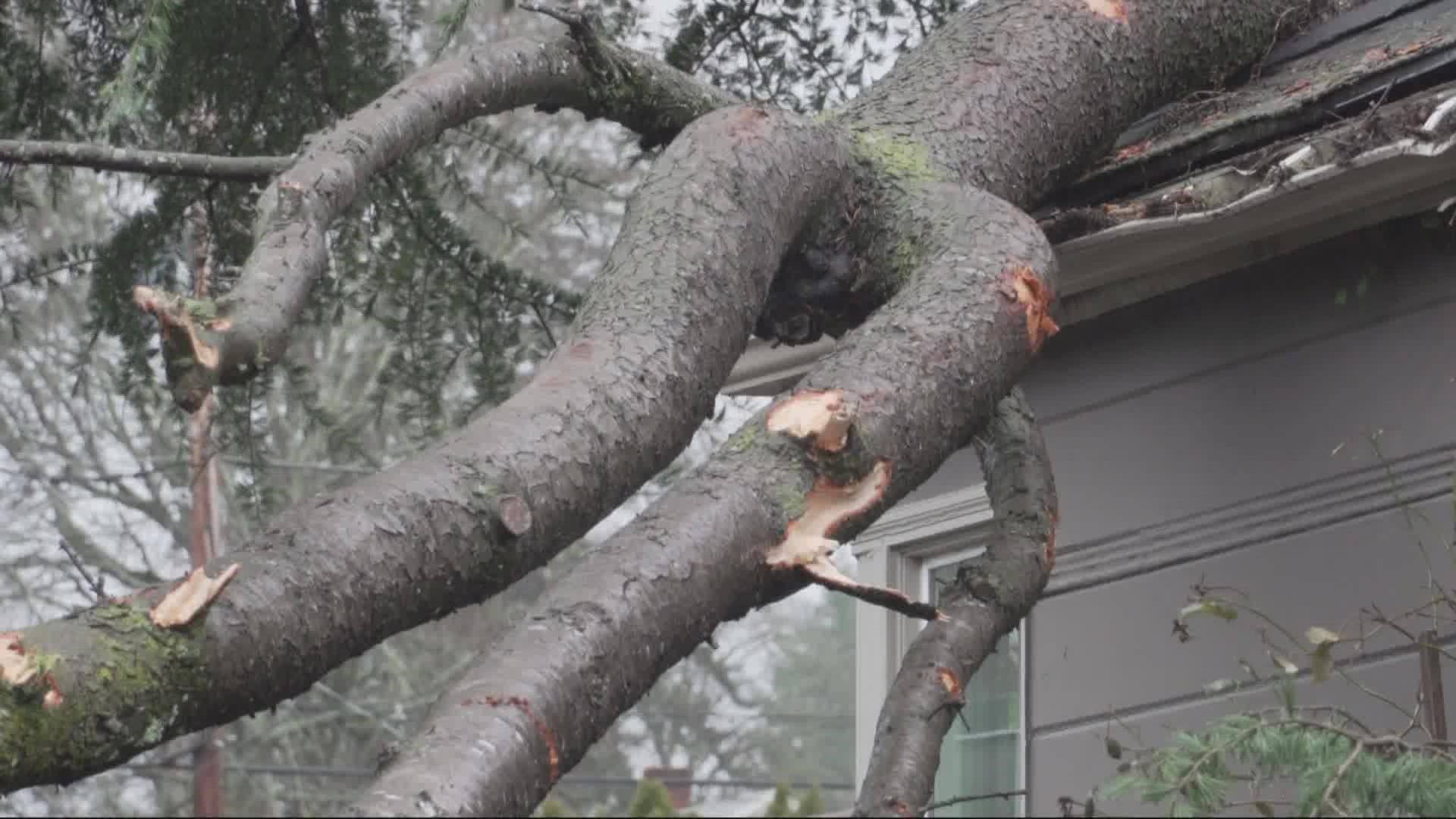PORTLAND, Ore. — The winter storms that blew into Portland within the past week knocked down trees, burst pipes and caused all kinds of damage to homes and cars. With that damage comes insurance claims, repairs and clean-up.
For people like Cory Knapp in southwest Portland, first there's the immediate reaction when a tree falls on a home.
"Just as we were talking, as you were driving by, it all came down onto the street right here," Knapp told a KGW crew.
And then there’s the follow-up: What do I do next?
"You can see it’s all tangled up in those lower lines there so is it going to cause more of a problem," Knapp said.
Amy Harris, public affairs specialist with insurance company State Farm, said it's clear that these storms caused massive damage throughout the U.S.
"In total, 27 states and 31,000 overall claims we’ve seen in the last week — and in Oregon alone we’ve seen over 700," Harris said. "That's with both auto and home claims. We're seeing a lot of wind damage, a lot of water damage, frozen pipes that have burst, trees that are down."
While damage may be ubiquitous throughout much of Oregon, it's not always a straightforward answer as to who’s liable and who needs to make the insurance call, unless a homeowner can prove some type of negligence.
"Insurance is kind of funny with trees," Harris said. "If your neighbor’s tree falls on your fence or your property, you’re responsible for that, not your neighbor."
Harris said a person's first call should be to their home or car insurance agent — don't jump to action just yet.
"Keep receipts, document everything you do, and don’t pay for everything up front," she said. "Make sure you’re reaching out to your agent to find out exactly what is covered with your policy."
Then, she shared recommendations for selecting a contractor:
- Ask around for references and check contractor licenses and certificates of insurance.
- Insist on detailed, written estimates that show the cost, labor required and estimated time of the work.
- Check any potential warranty and watch out for conditions that would void it.
- Look up reviews or formal complaints filed against any contractor through sites like the Better Business Bureau and Oregon's consumer protection resources.
Lastly, Harris said the best way to be prepared for future claims is to assess the value of what you have ahead of time.
"One of the key things we like to remind people to do is a home inventory — simply walking around your house with a phone or a pad of paper documenting the value of what you have — so if it does need to be replaced, you know exactly the value of what you had," she said.
The Oregon Department of Consumer and Business Services said Thursday that it is still too early to share data on the calls and inquiries DCBS has received as a result of the most recent storm. That spokesperson said DCBS should have the information early next week. This story will be updated with more information at that time.

